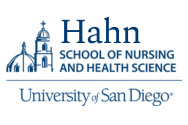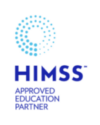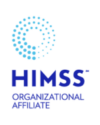Master of Science in Health Care Informatics
Health Care Informatics Specialization



Request Information
Ready to Learn More About the MS In Health Care Informatics?
Health Care Informatics Specialization
The Health Care Informatics (HCI) specialization is the most popular track in the Health Informatics master’s degree program, as it gives students broad exposure to the many different aspects of health informatics. This track covers a wide range of technical, analytical and innovative health care technology skills that will enable students to be proficient in many health care applications. Learning from expert faculty with professional experience working in health informatics — from analytics to leadership and everything in between — gives students unique insights into all facets of the health informatics field. Graduates of this specialization will be prepared for any number of careers in the health informatics field.
This track is for students who: are new to health care informatics, and those who want exposure to different aspects of the field — including data analytics and leadership — without specializing in a single area. Students in this track can pursue a career as a health or clinical informaticist, health care consultant, EHR trainer or implementation specialist, clinical analyst or a health informatics team leader.

Are You an International Student?
If you are planning to seek a visa to attend the MS-HCI program on-campus, you will enroll in a full-time course of study that includes classes from both specializations and a practicum, for a total of 42 units.
Curriculum for Students in the Health Care Informatics Specialization
- Take 8 core courses plus 2 specialization courses
- Optional elective courses may be available
- Graduate in 20 months (5 terms)
- IMPORTANT! All students will need a Windows computer prior to the start of class.
Orientation (Online Students Only)
Prior to beginning your first term, you’ll be required to complete the program orientation course, which generally takes about 12-16 hours. The course is self-paced but is mandatory. Please plan your schedule accordingly.
Orientation for on-campus students will be scheduled near the start of the term and coordinated with you directly by a member of our team.
Core Courses – Taken By All Students
| Course | Units |
|---|---|
|
Learn foundational knowledge and skills in health information management, informatics, and U.S. healthcare delivery, with a focus on compute… |
3 |
|
Equips students with the essential knowledge and skills required for the planning, analysis, design, and implementation of computer-based in… |
3 |
|
Acquire advanced database skills such as database design, data structuring, modeling and the development of database management systems.… |
3 |
|
Learn to use data analytics in addressing specific clinical queries, crafting clinical decision support rules, and employing precision medic… |
3 |
|
Examine the intricate hardware and software requirements essential for Electronic Health Records (EHRs), and trace the historical trajectory… |
3 |
|
Explore the role of leadership in driving innovation and change in healthcare organizations by examining leadership theories, ethics, values… |
3 |
|
Develop skills to evaluate data for the purpose of formulating, resolving, and empirically testing data-driven hypotheses.… |
3 |
|
Explore how information technology and healthcare intersect to address modern challenges in health sciences, emphasizing the evaluation of h… |
3 |
Informatics Specialization Courses
| Course | Units |
|---|---|
|
Explore advanced healthcare information management topics, focusing on cybersecurity, interoperability, emerging trends in technology, and h… |
3 |
|
Explore the legal principles and strategies for minimizing risk and liability within healthcare systems, and review legal and ethical dilemm… |
3 |
Optional Elective for On-Campus Students (Not Part of Your Degree Requirements)
| Course | Units |
|---|---|
|
Gain practical experience in real-world healthcare informatics and data analytics settings, translating theoretical knowledge into practical… |
3 |

Technology Requirement
All students in the MS-HCI program are required to have a Windows-based computer by the start of their first term.
DEGREE PLAN For campus Students
All campus-based students will start in the Fall term.
Part time students will take 2 classes in the evening each term, with required coursework running year-round (Spring, Summer and Fall terms.) 30 units total.
Full time students will take 3 classes in the evening each term, with required coursework running year-round (Spring, Summer and Fall terms.) In the final term, there are only two required courses, but students wishing to take a third class may enroll in an elective. (42 units are required; 45 with the optional elective in the final term).
International students are required to enroll in the full-time option.
DEGREE PLAN For Online Students
Degree candidates are admitted throughout the year to begin their program during one of three terms (Spring, Summer or Fall). Students will take two courses during each 14-week term, focusing on one 7-week course at a time.
Download a PDF of your degree plan that corresponds with your start term.
Important dates for your starting term will be found in the degree plan. Important dates for subsequent terms can be found in your student success center after acceptance.
Frequently Asked questions
How much time will I need to dedicate to this program?
While this will vary from student to student, most students spend approximately 20 hours per week on their studies.
What is the difference between the online and on-campus versions of this program?
In terms of the quality of education you will receive, there is no difference between the online and the on-campus formats of the HCI program.
- Both formats are 30 units, although campus students can choose to take a full-time course of study totaling 42 units.
- The same material is taught by the same faculty across both formats
- The course learning outcomes and program learning outcomes are the same across both formats
Minor differences include:
- On-campus students interact with one another directly within the classroom while online students engage in virtual sessions and online discussion forums.
- The campus section only admits new students in the Fall, whereas the online section admits new students in Fall, Spring and Summer.
- Online students take one accelerated class at a time, and classes run year-round. Each online class lasts just 7 weeks. On-campus students take 2 to 3 classes concurrently over a 14-week term, depending on whether they are enrolled part-time or full-time. Campus students also attend courses year-round.
What courses will I take that are unique to the Health Care Informatics Specialization?
- HCIN 544: Advanced Health Care Information Management
- HCIN 630: Health Care Law and Risk Management
What careers can I pursue with a Health Care Informatics Specialization?
Typical job titles that graduates of this track pursue include:
- Electronic Health Record Administrator/Trainer
- Clinical Analyst
- Informatics Analyst
- Health Care IT Project Manager
A Career in Health Care Informatics: How Big Data & Technology Are Creating New Opportunities to Work in Health Care
Free 21-page Book
Where Should We Send Your Health Care Informatics Career Guide?
"*" indicates required fields









